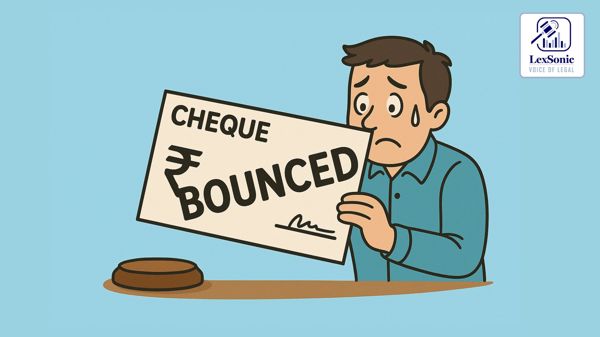Court Upholds Vicarious Liability Potential for Former Company Officers in Cheque Bounce Case.
06 February 2024
Negotiable Instruments Act >> Criminal Law
A recent decision from an Indian court sheds light on the principles of vicarious liability under Section 141 of the Negotiable Instruments Act, 1881 (NI Act). The case involved a challenge to summons issued against former directors (Petitioners) in a cheque bounce complaint filed by the payee (Respondent).
Facts:
The Petitioners tendered their resignations from M/s AM Vinyl Pvt. Ltd. (Company) on March 25, 2018. Subsequently, the Company issued cheques to the respondent, which were dishonoured upon presentation due to insufficient funds or a closed account. The Respondent, aggrieved by the dishonoured cheques, lodged a complaint against the Petitioners under Section 138 of the NI Act.
Petitioners' Contention:
The Petitioners contended that they were not liable for the dishonoured cheques issued after their resignation from the Company.

Respondent's Position:
The Respondent countered by arguing that the Petitioners, while in charge of the Company's affairs, had assured the Respondent regarding the honourability of the cheques. This, according to the Respondent, established vicarious liability under Section 141 of the NI Act.
Court's Analysis:
- Limited Scope of Summons Stage: The court emphasized the well-established principle that the issuance of summons involves a prima facie assessment of the allegations in the complaint and supporting evidence. It is not a mini-trial to determine the merits of the case.
- Burden of Proof under Section 141: The court acknowledged the petitioners' potential defense under the first proviso to Section 141. This proviso allows individuals to escape liability by proving they lacked knowledge of the offense or exercised due diligence to prevent it.
- Specificity of Allegations: The court found the respondent's complaint met the threshold for issuing summons. The specific allegations regarding the petitioners' assurances and their role in the Company's affairs justified further inquiry at trial.
- Trial to Determine Liability: The court clarified that its observations were not a final determination of the Petitioners' liability. The trial court would evaluate the evidence presented by both parties to reach a definitive judgment.
Conclusion:
The court dismissed the petitions challenging the summons. The case will proceed to trial, where the burden of proving their lack of knowledge or due diligence rests on the Petitioners. The final verdict on their culpability will hinge on the evidence presented during the trial.
Negotiable Instruments Act, 1881 Code of Criminal Procedure, 1973
